WHAT’S YOUR COVID PLAN?
If you think you might have COVID-19 (coronavirus disease 2019), you could benefit from a plan.
Don’t wait to act!
Do you know how to tell if you have COVID-19?
It can be hard to tell the difference between symptoms of COVID-19 and symptoms of the flu, common cold, or other illnesses.1
The only way to confirm whether you have COVID-19 is to get tested.
Tested positive? Talk to your doctor about treatment options.
Do you know who is at risk for severe COVID-19?
While older adults are at greater risk of becoming severely ill from COVID-19, other medical conditions can put a person of any age at increased risk for progressing to severe COVID-192,3:

≥60 years of age

Obesity

Cancer
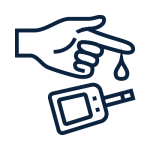
Diabetes

Chronic kidney disease
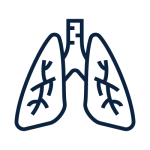
Chronic lung diseases
(Including asthma)
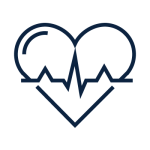
Heart conditions
(Including high blood pressure)

Chronic liver disease
These are not the only conditions that can increase the risk for severe COVID-19. For more information, talk with your doctor.
Feeling unwell? Make a COVID plan!
3 STEPS THAT SHOULD BE PART OF EVERY COVID PLAN:
TEST: The only way to know for sure if you have COVID-19 is to get tested.

TALK: If you test positive, contact your doctor right away to discuss next steps.
TAKE ACTION: If you are at increased risk for severe COVID-19, or if your doctor thinks you are at increased risk, ask your doctor about treatment options, including those you can take at home.
Waiting too long to get tested may increase your risk for severe COVID-19. Act now!
COVID=coronavirus disease.
References: 1. Mayo Clinic Staff. COVID-19, cold, allergies and the flu: what are the differences? Published May 18, 2021. Accessed March 15, 2022. https://www.mayoclinic.org/diseases-conditions/coronavirus/in-depth/covid-19-cold-flu-and-allergies-differences/art-20503981 2. People with certain medical conditions. Centers for Disease Control and Prevention. Accessed March 15, 2022. https://www.cdc.gov/coronavirus/2019-ncov/need-extra-precautions/people-with-medical-conditions.html 3. Docherty AB, Harrison EM, Green CA, et al. Features of 20 133 UK patients in hospital with covid-19 using the ISARIC WHO clinical characterisation protocol: prospective observational cohort study. BMJ. 2020;369:m1985. doi:10.1136/bmj.m1985
Copyright © 2022 Merck & Co., Inc., Rahway, NJ, USA and its affiliates. All rights reserved. HQ-ANV-00130 04/22






